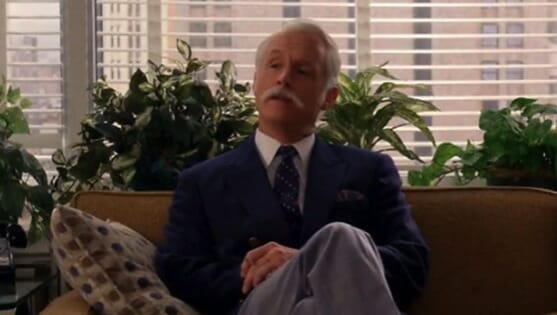Mad Men: “Severance”

We’re never gonna get that fire Mad Men’s been teasing us with.
Whether it’s figurative or a literal blaze like the one Joan threatens when she says she wants to “burn this place to the ground,” whatever all that fire imagery in season 7A was hinting at—it’s not coming.
That’s not the kind of show this is. There are no mafia dons waiting for a gunman to walk through the door while they’re dining with their families, no kingpins whose sins finally catch up with them. Mad Men is a show almost entirely about character development, and “Severance” seemed to indicate that that’ll be the focus of these final seven episodes. And why wouldn’t it be? We’ve already had the fires—moments like the end of season three, where our main characters risked everything to start their own agency, or “Waterloo,” the episode prior to this one, where they got everything they’ve been working for (a multimillion dollar deal with McCann, power, a big client in Burger Chef). These feel like infernos in the moment, but once we keep moving and eventually return to the status quo, we remember them more as sparks or flares.
Because that’s the thing about being so consumed by one single goal—once you achieve it, you have to keep on living. The midseason finale asked us “What do I do now?”, and Matt Weiner wastes no time in showing us his characters are still grappling with a similar question in “Severance,” bookending the episode with Peggy Lee’s “Is That All There Is?” (“I remember when I was a very little girl, our house caught on fire/I’ll never forget the look on my father’s face as he gathered me up/In his arms and raced through the burning building out to the pavement./I stood there shivering in my pajamas and watched the whole world go up in flames./And when it was all over I said to myself, “Is that all there is to a fire?”) and opening on Don leering at a model in a casting call like he might’ve in season one.
-

-

-

-

-

-

-

-

-

-

-

-

-

-

-

-

-

-

-

-

-

-

-

-

-

-

-

-

-

-

-

-

-

-

-

-

-

-

-

-








































